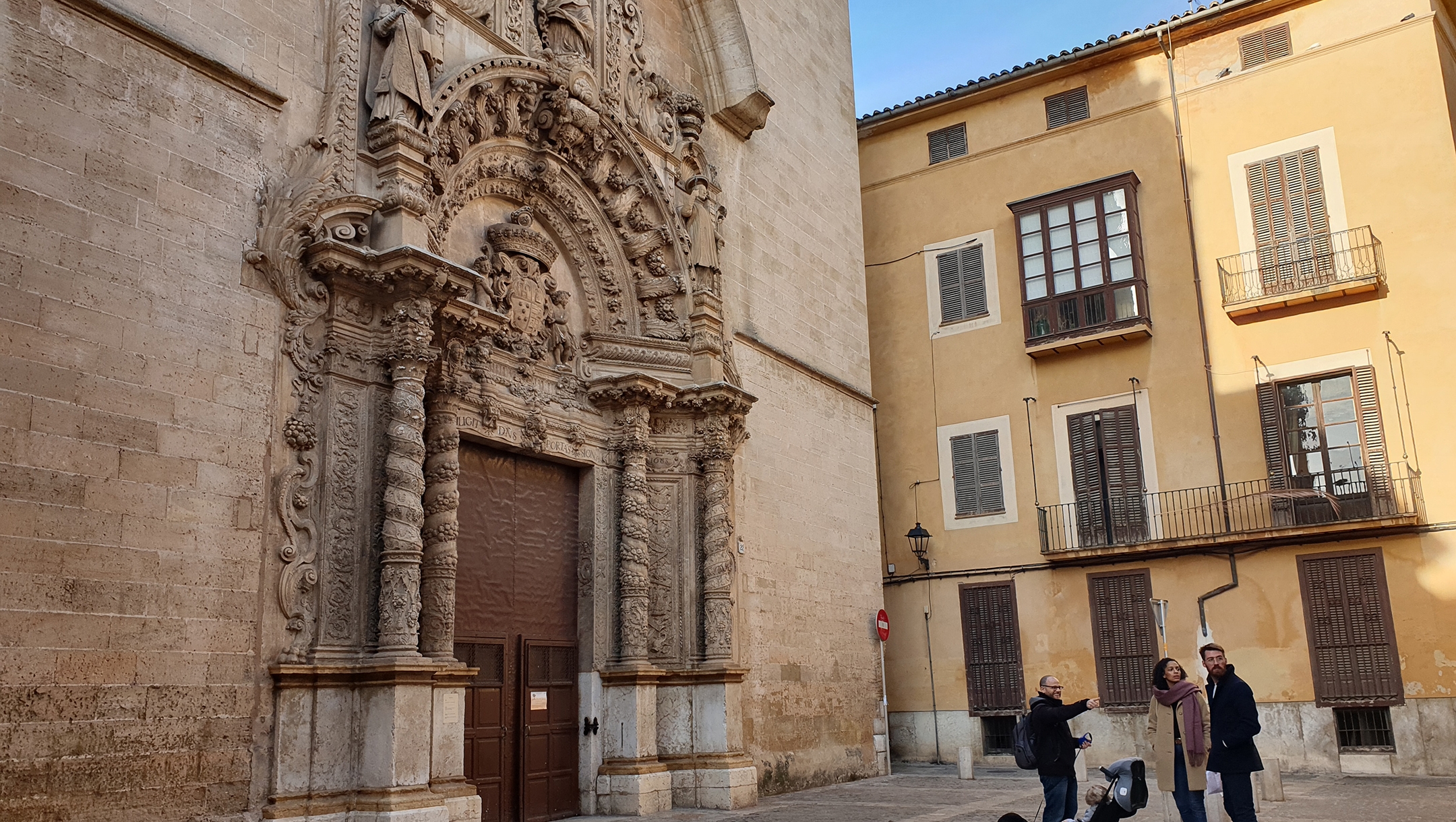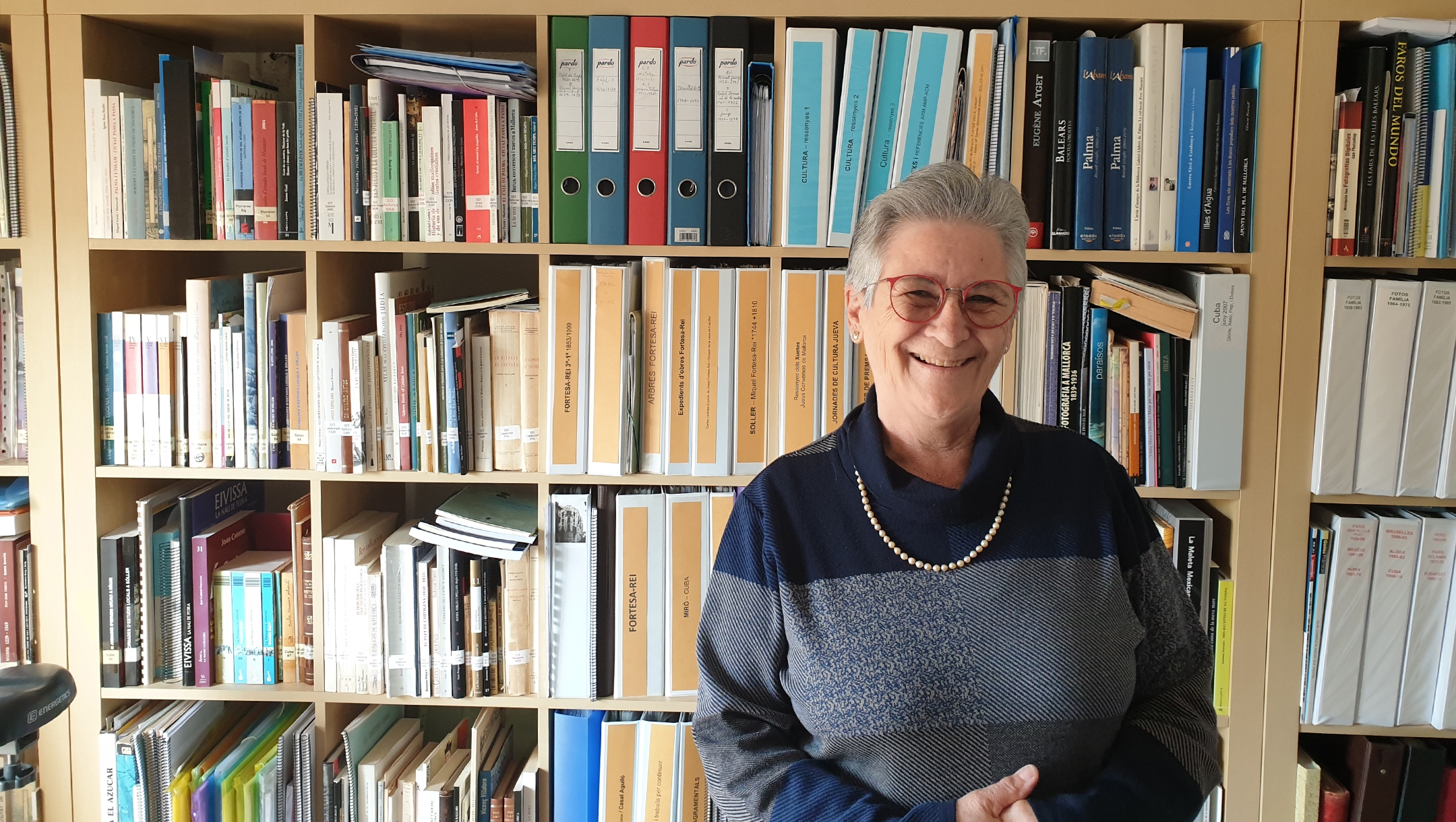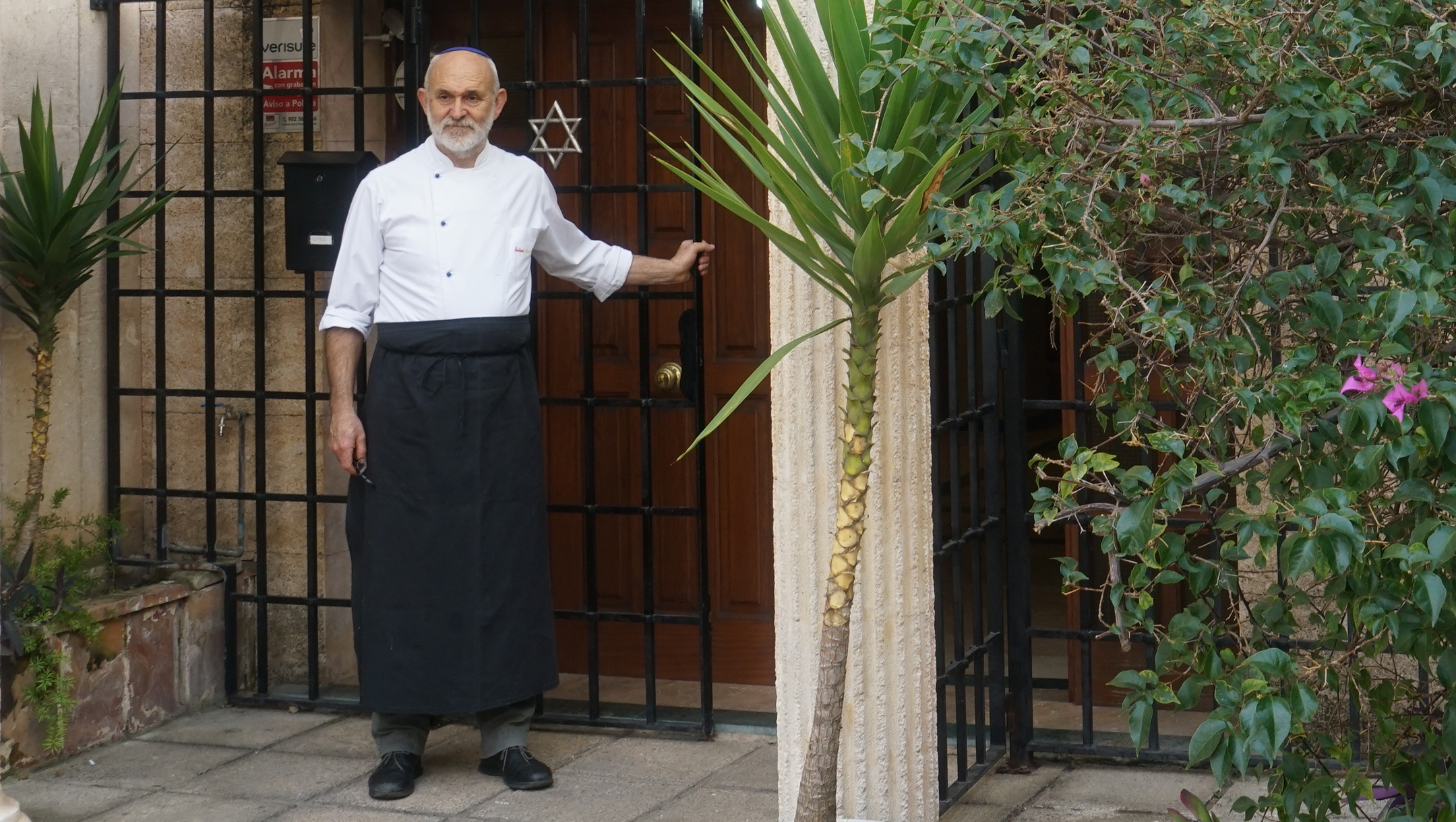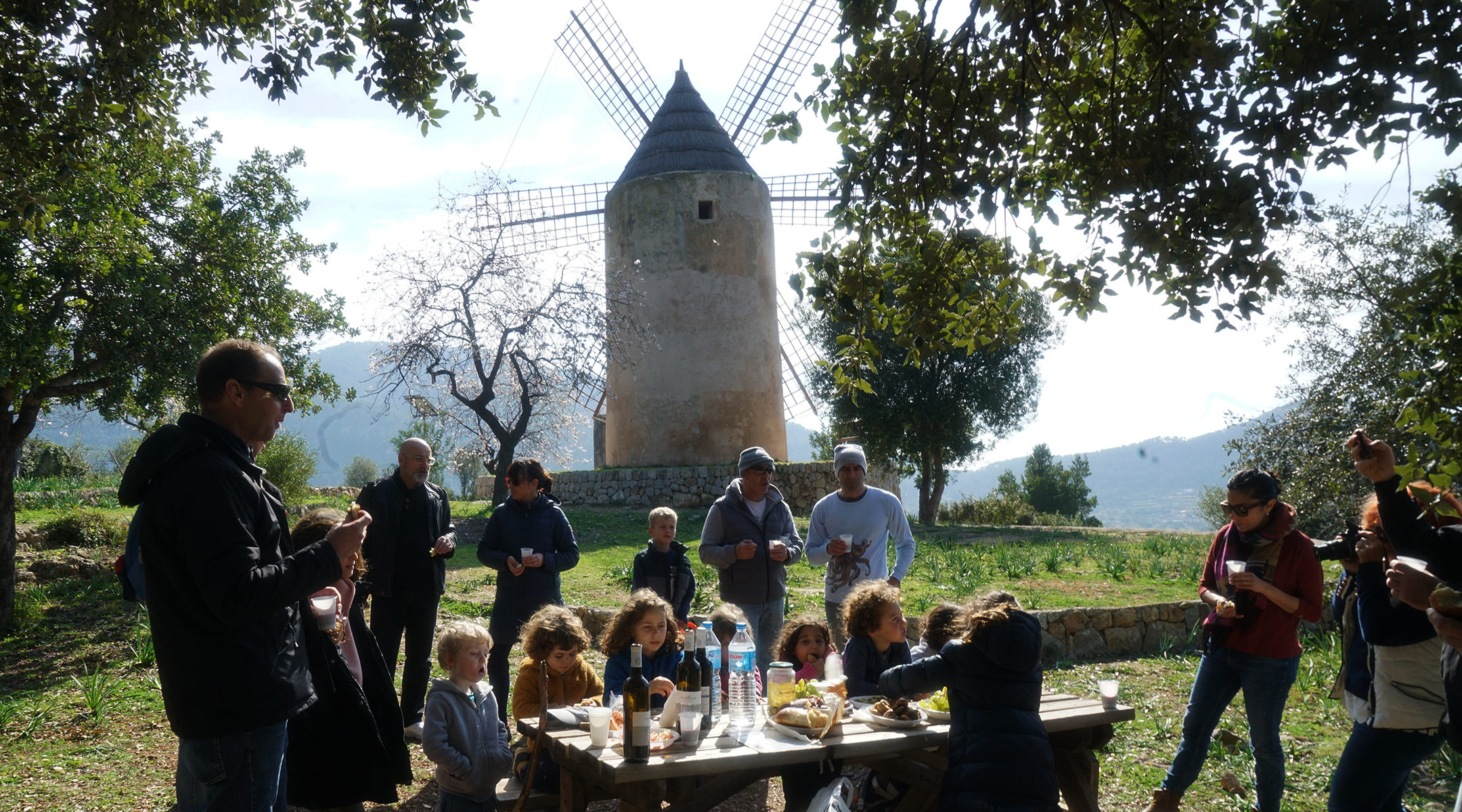PALMA DE MALLORCA, Spain (JTA) — On this island south of Barcelona, Jews celebrate Purim these days pretty much as they do most anywhere else in Europe.
There’s the reading of the Book of Esther at the small synagogue near the marina, followed by a costume party bringing together the different contingents of Palma’s Jewish population of several hundred: unaffiliated Israeli families, retired British sun lovers, Sephardic locals and French businessmen, to name a few.
But only 50 years ago, Purim was the holiest day of the year — comparable to Yom Kippur — for this island’s unique Jewish community. Persecuted for centuries during the Spanish Inquisition, the forcibly converted Jews of Mallorca had exploited their persecutors’ relative ignorance of Purim to mourn their situation and sustain their faith and culture.
“Purim wasn’t celebrated in Mallorca, it was sorrowfully observed in secret,” said Rabbi Nissan Ben-Avraham, a Mallorca native from a family of chuetas — the local name for anusim, or those who were forcibly converted to Christianity during the Inquisition.
Celebrating any of the major Jewish holidays — including Passover, Sukkot and Shavuot — would have been too risky for chuetas, a minority that for centuries had been treated with suspicion and occasionally violence. Those holidays were too well-known and featured too many distinctive customs to be practiced safely.
But Purim was obscure enough to be observed undetected, according to Ben-Avraham, who had served until two years ago as the emissary to Mallorca for Shavei Israel, a group that helps those with Jewish ancestry reconnect to Judaism.
In previous centuries, a holiday that celebrates the Jews’ triumph over people who conspired to annihilate them in fifth-century B.C. Persia was far less joyous than its carnival-like character today. Jews only began dressing up on Purim in the 16th century. Before that, the holiday’s essence was primarily in the daylong Fast of Esther, which comes immediately before the actual holiday and is meant as a sign of gratitude to God for the survival of Jews in Persia.

Dani Rotstein, pointing, explains to German tourists about a church that used to be a synagogue in Palma de Mallorca, Spain, Feb. 11, 2019. (Cnaan Liphshiz)
The fast aligned comfortably with Lent, a 40-day period in early spring during which Catholics abstain from certain indulgences, including meat. Many Christians would fast on Ash Wednesday, the first day of Lent, thereby providing a handy alibi for chuetas observing the Fast of Esther at around the same time, Ben-Avraham explained.
Some chuetas fasted on Purim as recently as 30 years ago, according to Dolores Forteza Rei, a member of the Memoria de la Carrer association that is dedicated to the preservation of chueta heritage. Her late father, Jose, began fasting on Purim in the 1930s upon his return to the island from the Spanish Civil War.
“He kept fasting on Purim right until he died,” Forteza Rei said.
Chuetas today form a minority of about 15,000, very few of whom regard themselves as Jews. In the past, however, they had a deeper, emotional connection to the story of Purim and particularly to its protagonist Esther.
According to the story, Esther was called upon by her uncle to enter the harem of the Persian king Ahasuerus and foil his evil adviser’s plan to annihilate the kingdom’s Jews. Hiding her Jewish identity until the story’s climax, Esther was defined as an “anusa” already in the 19th century by the Malbim, a rabbinic sage from what is now Ukraine.
“Of course we connect in a very powerful way to her story and character,” said Iska bat Valls, a 60-year-old chueta who converted to Judaism several years ago. She is now an active member of Mallorca’s tiny Jewish congregation of several dozen people.
For generations, the near-homophones Estelle and Stela were particularly popular first names for chueta girls as a tribute to the heroine.
 Dolores Forteza Rei presenting her personal archive of the chuetas of Mallorca, Feb. 10, 2019. (Cnaan Liphshiz)
Dolores Forteza Rei presenting her personal archive of the chuetas of Mallorca, Feb. 10, 2019. (Cnaan Liphshiz)
Both Toni Pinya, a chueta who converted back to Judaism and is now a board member of the Jewish Community of Mallorca, and Rabbi Ben-Avraham recall getting beaten up and harassed at school in Palma as late at the 1960s by classmates who called them “Christ killers” and “dirty chuetas.”
Pinya’s parents were married in secret at dawn in the 1950s to avoid a riot because his father was a chueta, Pinya explained during an interview at the local synagogue.
A small space on the ground floor of a residential building next to a Thai massage parlor, the synagogue boasts a Star of David on its gate and a mezuzah on its front door.

Chef Toni Pinya, a board member of the Jewish Community of Mallorca, entering the synagogue of Palma de Mallorca, Feb. 11, 2019. (Cnaan Liphshiz)
Such recognizable features were unthinkable at the three secret synagogues where chuetas had practiced their Judaism discreetly for many years after the Inquisition. Located at the old center of Palma de Mallorca, the capital of the island of Mallorca, these synagogues no longer exist. One of them, located on a quiet alley so narrow that only small cars can negotiate it, is now a leather shop. Another is a church.
But after the fall of the pro-Catholic dictatorship of Francisco Franco in 1975, anti-chueta sentiment declined and with it the need for secrecy around the Purim customs. By then, thousands of tourists to Mallorca had transformed the remote island into a European party capital, Forteza Rei said.
“Suddenly we were not the foreigners anymore. Being chueta became irrelevant. An anecdote,” she said.
Pinya, a chef who also cooks for the synagogue, is one of dozens of chuetas who converted to Judaism over the past two decades.
Nowadays, “Purim is just a great attraction for unaffiliated Jews, especially the Israeli ones with children,” said Dani Rotstein, a founder of the island’s Limmud conference of Jewish learning.
A New Jersey native who specializes in video productions, Rotstein settled in Mallorca in 2014 and started the Limmud festival there last year.
Still, Purim resonates with Mallorca’s Jews in much deeper ways than elsewhere, he said.
“It’s not surprising, when you think about it,” Rotstein said. “Many chuetas basically feel that this story is about their own lives.”
JTA has documented Jewish history in real-time for over a century. Keep our journalism strong by joining us in supporting independent, award-winning reporting.






